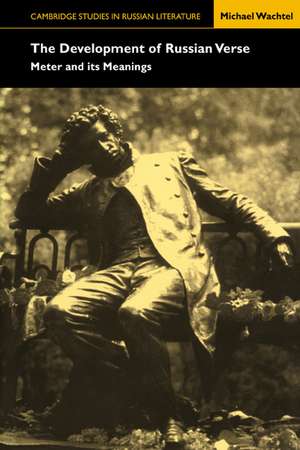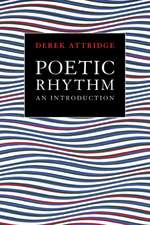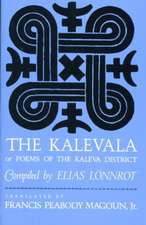The Development of Russian Verse: Meter and its Meanings: Cambridge Studies in Russian Literature
Autor Michael Wachtelen Limba Engleză Paperback – noi 2006
| Toate formatele și edițiile | Preț | Express |
|---|---|---|
| Paperback (1) | 384.04 lei 43-57 zile | |
| Cambridge University Press – noi 2006 | 384.04 lei 43-57 zile | |
| Hardback (1) | 681.84 lei 43-57 zile | |
| Cambridge University Press – 20 ian 1999 | 681.84 lei 43-57 zile |
Din seria Cambridge Studies in Russian Literature
-
 Preț: 361.02 lei
Preț: 361.02 lei -
 Preț: 285.75 lei
Preț: 285.75 lei -
 Preț: 340.85 lei
Preț: 340.85 lei -
 Preț: 416.10 lei
Preț: 416.10 lei -
 Preț: 288.76 lei
Preț: 288.76 lei -
 Preț: 292.40 lei
Preț: 292.40 lei -
 Preț: 360.05 lei
Preț: 360.05 lei -
 Preț: 299.82 lei
Preț: 299.82 lei -
 Preț: 320.66 lei
Preț: 320.66 lei -
 Preț: 353.63 lei
Preț: 353.63 lei -
 Preț: 291.26 lei
Preț: 291.26 lei -
 Preț: 318.84 lei
Preț: 318.84 lei -
 Preț: 318.84 lei
Preț: 318.84 lei -
 Preț: 401.66 lei
Preț: 401.66 lei -
 Preț: 382.71 lei
Preț: 382.71 lei -
 Preț: 291.43 lei
Preț: 291.43 lei -
 Preț: 398.54 lei
Preț: 398.54 lei -
 Preț: 362.54 lei
Preț: 362.54 lei -
 Preț: 289.30 lei
Preț: 289.30 lei -
 Preț: 360.63 lei
Preț: 360.63 lei - 14%
 Preț: 885.32 lei
Preț: 885.32 lei - 14%
 Preț: 754.36 lei
Preț: 754.36 lei - 14%
 Preț: 767.41 lei
Preț: 767.41 lei - 11%
 Preț: 691.66 lei
Preț: 691.66 lei -
 Preț: 282.48 lei
Preț: 282.48 lei -
 Preț: 321.14 lei
Preț: 321.14 lei -
 Preț: 239.48 lei
Preț: 239.48 lei -
 Preț: 288.37 lei
Preț: 288.37 lei -
 Preț: 293.55 lei
Preț: 293.55 lei -
 Preț: 281.12 lei
Preț: 281.12 lei -
 Preț: 291.64 lei
Preț: 291.64 lei
Preț: 384.04 lei
Nou
Puncte Express: 576
Preț estimativ în valută:
73.49€ • 76.92$ • 61.16£
73.49€ • 76.92$ • 61.16£
Carte tipărită la comandă
Livrare economică 31 martie-14 aprilie
Preluare comenzi: 021 569.72.76
Specificații
ISBN-13: 9780521028141
ISBN-10: 0521028140
Pagini: 344
Dimensiuni: 152 x 228 x 20 mm
Greutate: 0.5 kg
Editura: Cambridge University Press
Colecția Cambridge University Press
Seria Cambridge Studies in Russian Literature
Locul publicării:Cambridge, United Kingdom
ISBN-10: 0521028140
Pagini: 344
Dimensiuni: 152 x 228 x 20 mm
Greutate: 0.5 kg
Editura: Cambridge University Press
Colecția Cambridge University Press
Seria Cambridge Studies in Russian Literature
Locul publicării:Cambridge, United Kingdom
Cuprins
Acknowledgments; Note on translations and transliterations; Introduction; 1. The Russian ballad: passion, betrayal, revenge, and the amphibrachic tetrameter line; 2. The blank verse lyric: '… Again I visited' revisited; 3. The Onegin stanza: from poetic digression to poetic nostalgia; 4. Russian Arcadia: the elegiac distich and classical stylization; 5. Heirs of Mayakovsky: the poet and the citizen; Afterword: the meaning of form; Notes; Bibliography; Index.
Recenzii
"In five superbly researched chapters, and an introduction and afterword that are chapter equivalents, Michael Wachtel has produced a remarkable study that fleshes out and even attaches a memorable face to several salient meters and forms....Wachtel masterfully and insightfully unravels the complicated material and renders it invitingly accessible." The Russian Review
"For comprehensive graduate and research collections" Choice
"This book can recommended most strongly. It should be bought by all libraries with a Russian collection and put on the reading list of every undergraduate and post-graduate course that involves the study of Russian poetry." Pamela Davidson, Slavic Review
"In five superbly researched chapters, and an introduction and afterword that are chapter equivalents, Michael Wachtel has produced a remarkable study that fleshes out and even attaches a memorable face to several salient meters and forms. In proving that poets think diachronically, that is they do not only draw on the themes and images of their predecessors but also resort to their use of form (which is never neutral in Russian poetry), Wachtel masterfully and insightfully inravels the complicated material and renders it invitingly accessible." The Russian Review
"The book...is the work of a scholar who does care, and who is blessed with a ability to say cogently why all readers should. Wachtel has written an exemplary book in the tradition of scholars dedicated to teaching what they know to those who will follow." Slavic and East European Journal
"For comprehensive graduate and research collections" Choice
"This book can recommended most strongly. It should be bought by all libraries with a Russian collection and put on the reading list of every undergraduate and post-graduate course that involves the study of Russian poetry." Pamela Davidson, Slavic Review
"In five superbly researched chapters, and an introduction and afterword that are chapter equivalents, Michael Wachtel has produced a remarkable study that fleshes out and even attaches a memorable face to several salient meters and forms. In proving that poets think diachronically, that is they do not only draw on the themes and images of their predecessors but also resort to their use of form (which is never neutral in Russian poetry), Wachtel masterfully and insightfully inravels the complicated material and renders it invitingly accessible." The Russian Review
"The book...is the work of a scholar who does care, and who is blessed with a ability to say cogently why all readers should. Wachtel has written an exemplary book in the tradition of scholars dedicated to teaching what they know to those who will follow." Slavic and East European Journal
Descriere
An exploration of poetic form in the Russian verse tradition from Pushkin to Brodsky, first published in 1999.















